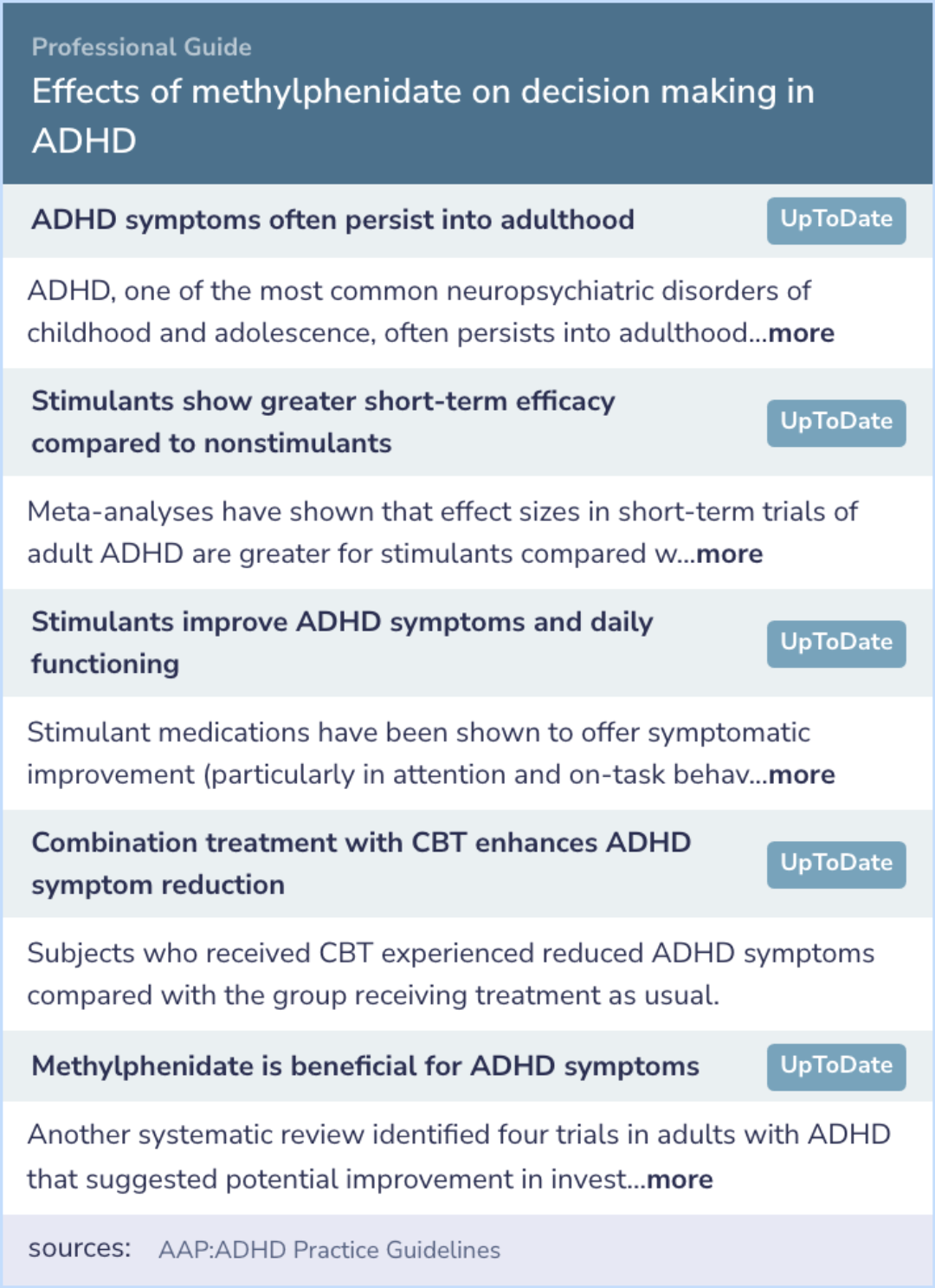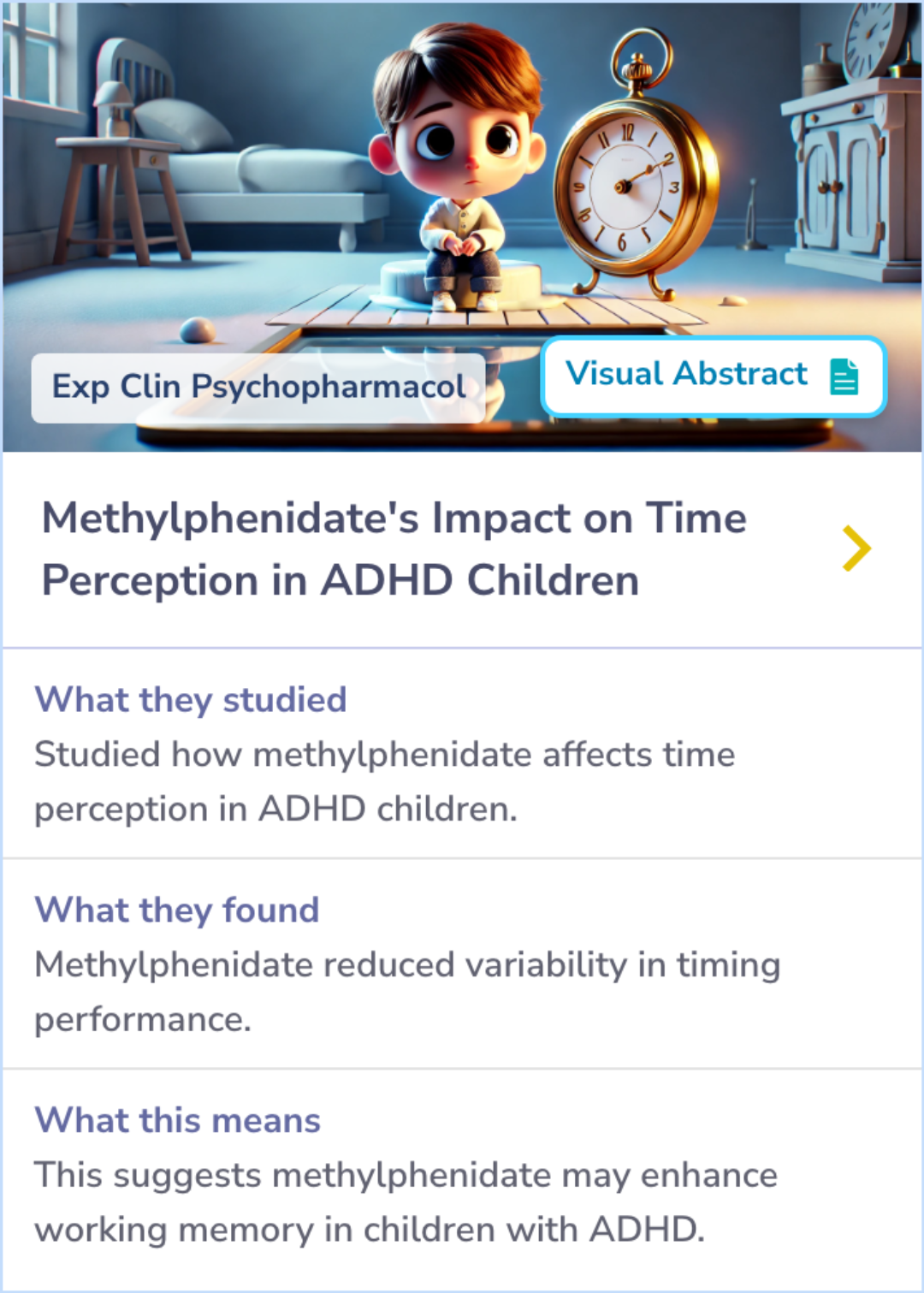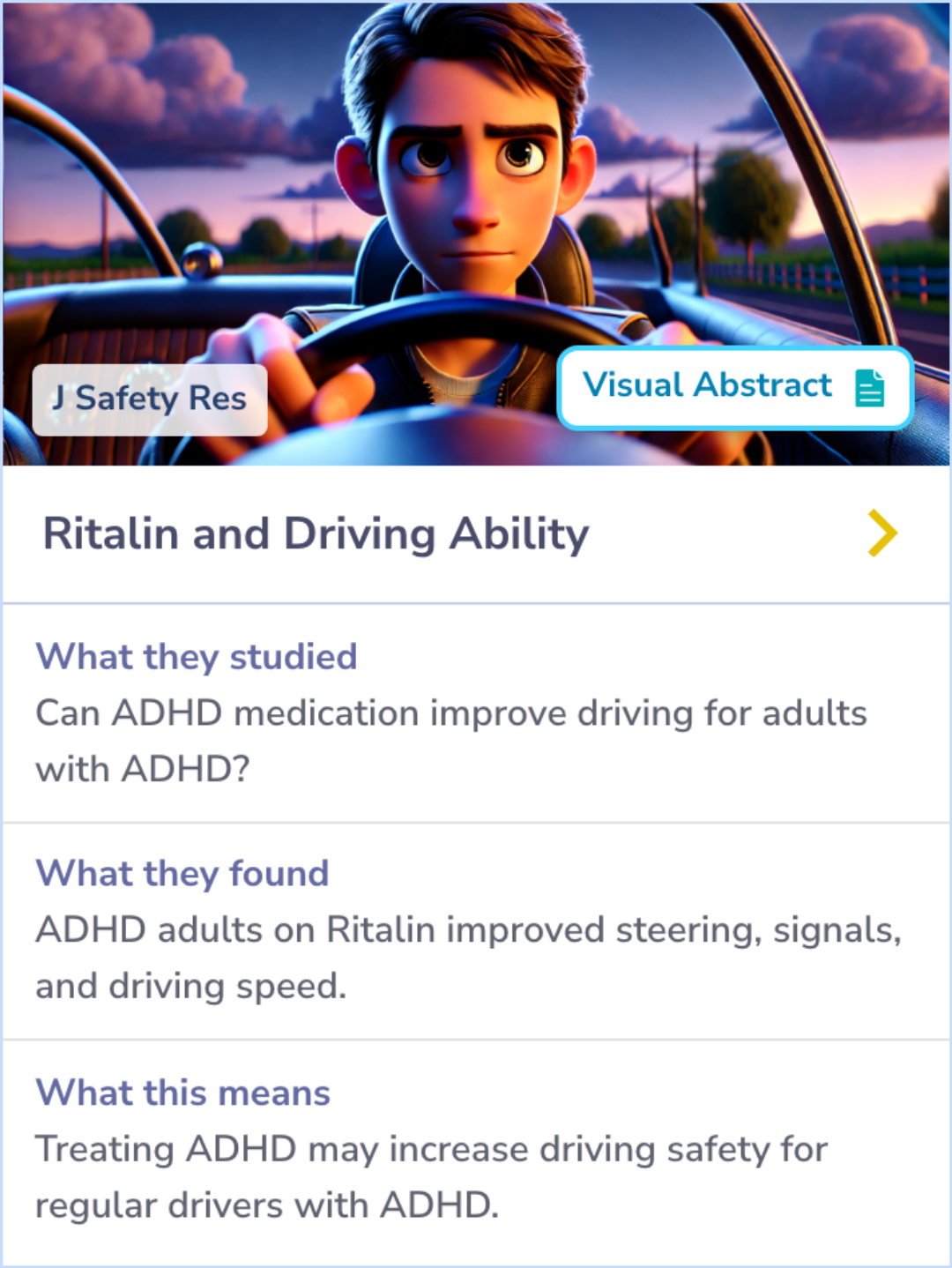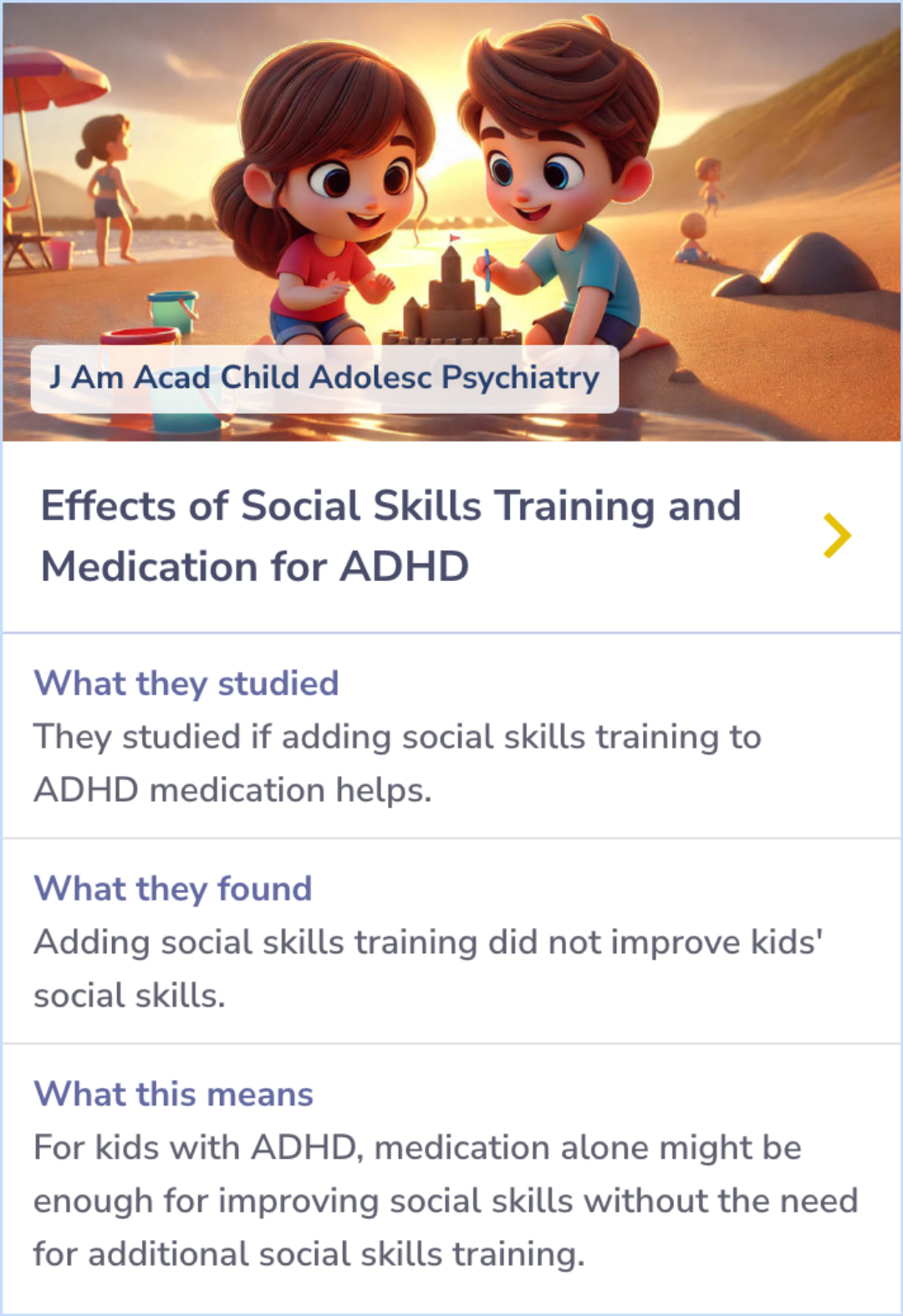Ritalin Paper Database
Visual Abstract
The effects of methylphenidate on decision making in attention-deficit/hyperactivity disorder
Effects of methylphenidate on decision making in ADHD
August 2, 2024
author
DeVito EE, Blackwell AD, Kent L, Ersche KD, Clark L, Salmond CH, Dezsery AM, Sahakian BJ
journal
Biol Psychiatry
Date Published
2008 Oct 1
Why link to a visual abstract?
What is a visual abstract?
Original
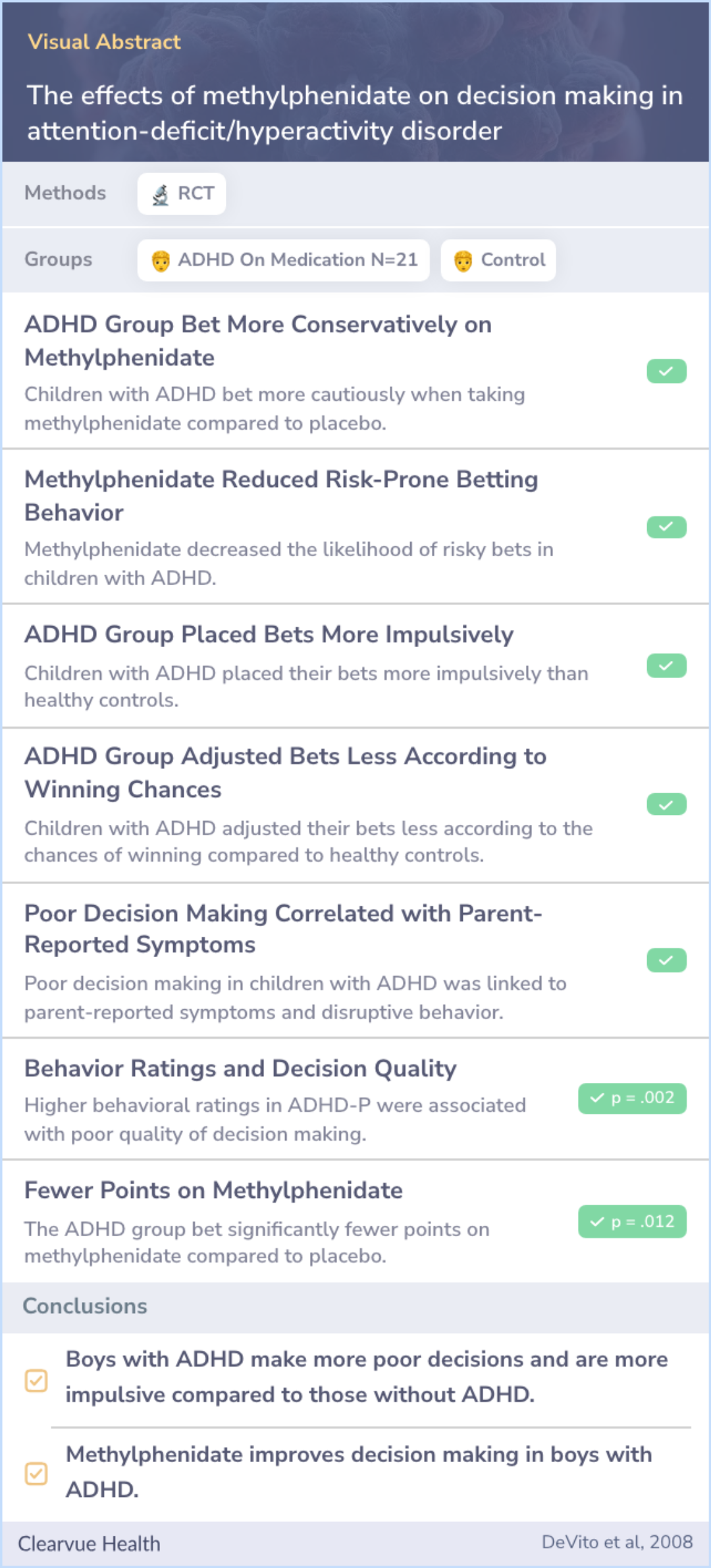
Study Summary
🔬
What They Studied
They studied how stimulant medication affects decision making in boys with ADHD compared to boys without ADHD.
💡
What They Found
They found that boys with ADHD made more poor decisions and bet more impulsively than boys without ADHD, but medication helped them bet more conservatively.
📚
What This Means
These findings suggest that medication can help boys with ADHD make better decisions, aligning with current guidelines that support the use of stimulants for managing ADHD symptoms.
Study Summary
Background
Abstract: background
The objectives of the study were to assess the effects of stimulant medication on decision making in ADHD and compare performance on the Cambridge Gamble Task between boys with and without ADHD.
👨⚕️
Primary Uses of Methylphenidate
Methylphenidate is FDA-approved for treating ADHD in children and adults and as a second-line treatment for narcolepsy.
🧠
Mechanism of Action
Methylphenidate blocks the reuptake of norepinephrine and dopamine, increasing their concentration in the synaptic cleft.
🧠
Psychiatric Risks
Methylphenidate may aggravate symptoms of psychosis or bipolar disorder and can cause new or worsened aggressive behavior.
👀
Monitoring for Side Effects
Regular monitoring for cardiovascular issues, psychiatric reactions, and growth suppression is required when using methylphenidate.
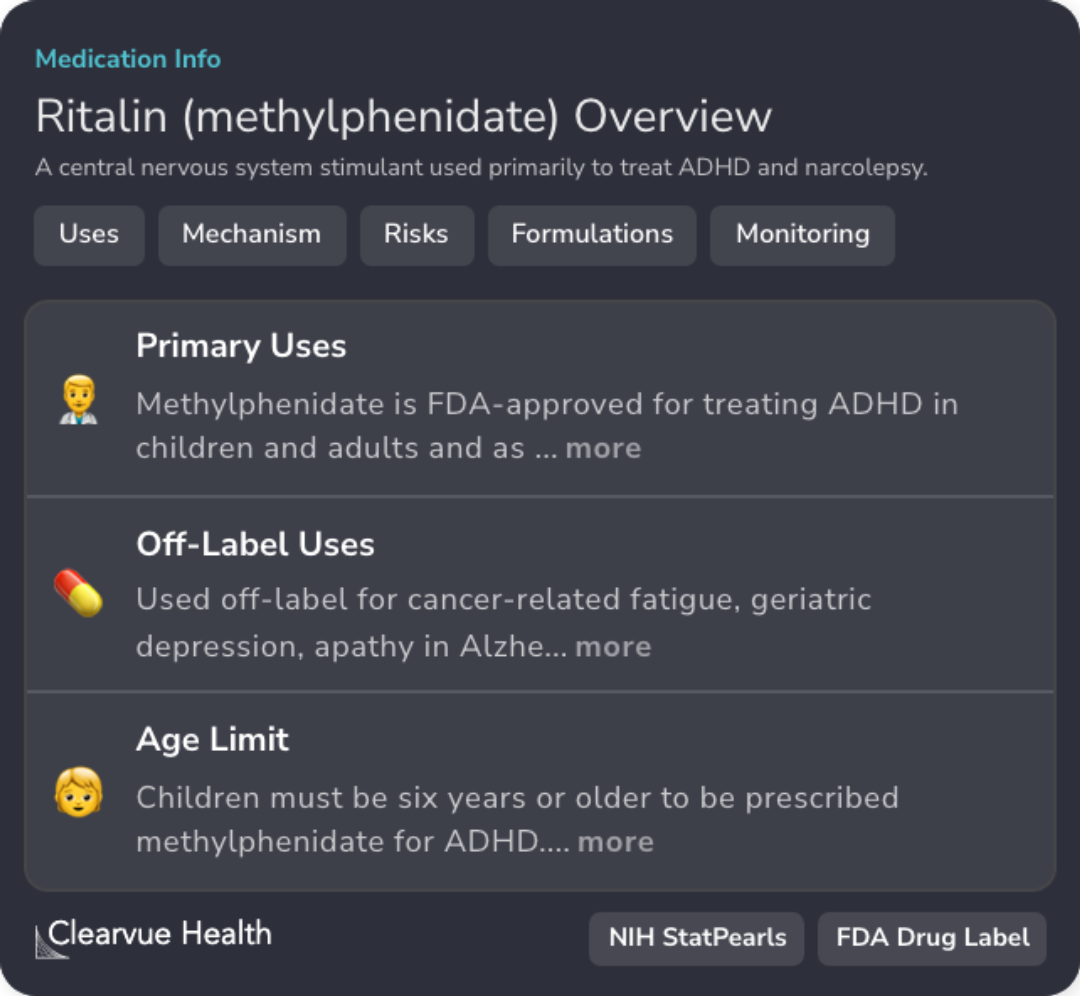
Study Summary
Methods
Researchers conducted a double-blind, placebo-controlled trial involving 21 boys aged 7 to 13 diagnosed with ADHD. Double-blind means that neither the participants nor the researchers knew who was receiving the actual medication, in this case, methylphenidate at a dose of 0.5 mg/kg. The boys were tested on their decision-making abilities using the Cambridge Gamble Task. For comparison, a group of healthy, age-matched boys was also assessed, but they were not given any medication.
Abstract: methods
Twenty-one boys (aged 7–13) diagnosed with ADHD underwent a double-blind, placebo-controlled trial of methylphenidate (.5 mg/kg) during which they performed the Cambridge Gamble Task (CGT). A healthy age-matched control group was tested on two occasi...more

Study Summary
Results
During the methylphenidate session, boys with ADHD bet more conservatively compared to when they were on a placebo. However, when matched against the healthy control group, the ADHD group overall made poorer decisions, placed impulsive bets, and didn't adjust their bets according to their chances of winning as effectively. Additionally, their poor decision-making was linked to symptoms and disruptive behaviors reported by their parents.
Abstract: results
The ADHD group bet more conservatively on the methylphenidate session than on the placebo session. In comparison with healthy control subjects, the ADHD group made more poor decisions, placed their bets more impulsively, and adjusted their bets less ...more

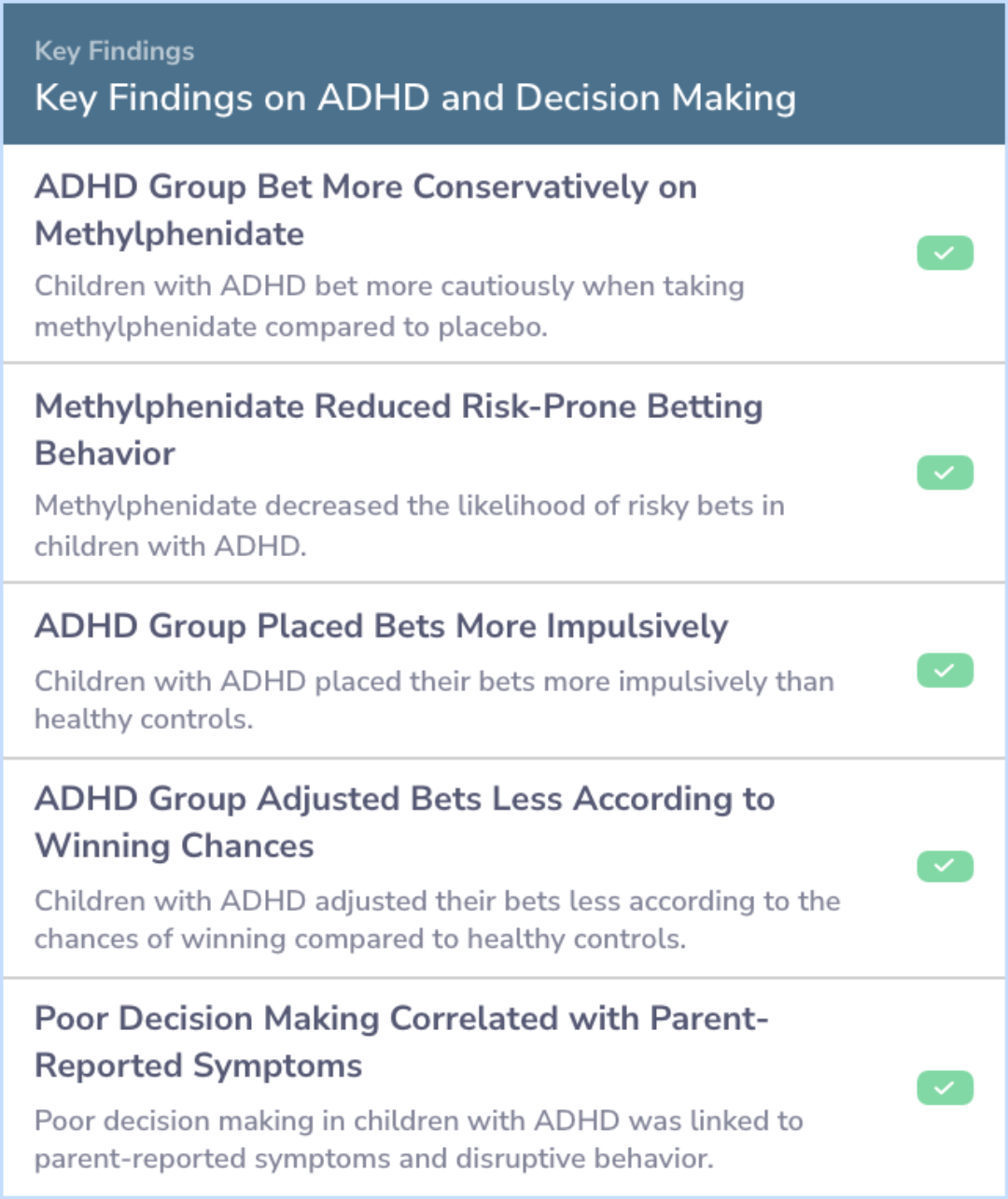
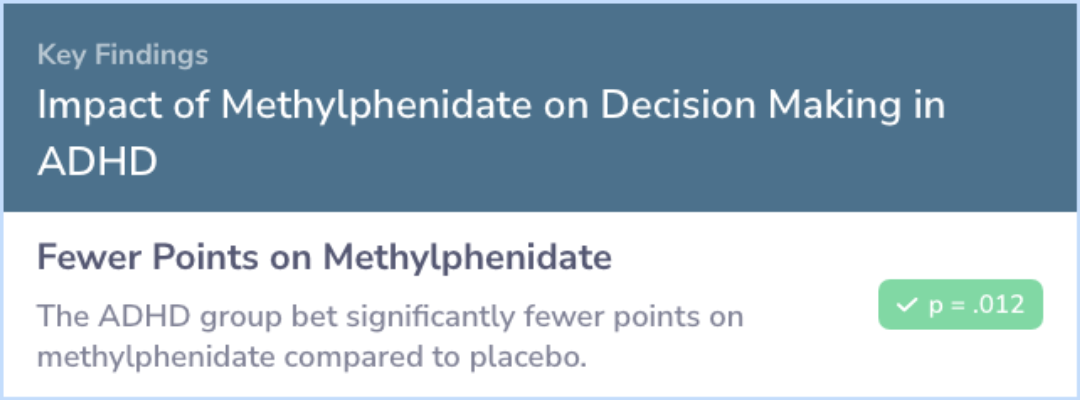
Study Summary
Conclusions
Methylphenidate helped reduce risky betting behaviors among boys with ADHD. Nonetheless, children with ADHD showed significant decision-making deficits compared to their healthy peers. These deficits include poor decision quality, higher impulsivity, and less strategic betting. The study suggests that measures of rational decision making could be useful indicators of impairment in children with ADHD.
Abstract: conclusions
Methylphenidate reduced risk-prone betting behavior on the CGT. Compared with control subjects, children with ADHD display a number of decision-making deficits on the task, and the measure of rational decision making may serve as an ecologically vali...more
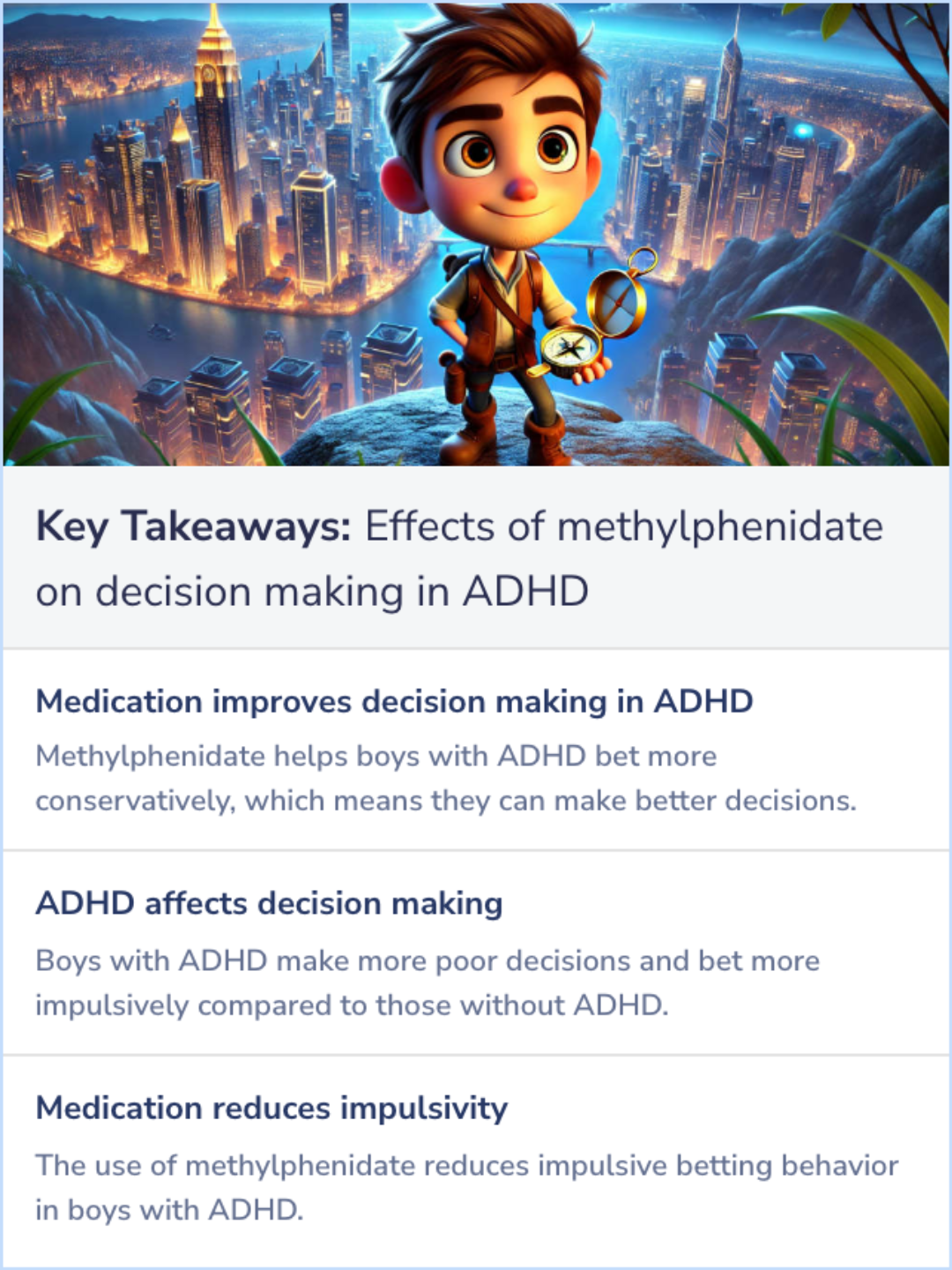
Professional Guide
Expert Opinion: Effects of methylphenidate on decision making in ADHD
The findings suggest that stimulant medication, such as methylphenidate, has significant effects on decision-making in boys with ADHD.
This aligns with current professional recommendations that highlight the short-term benefits of stimulants, which are greater compared to nonstimulant medications.
Moreover, combining medication with cognitive-behavioral therapy (CBT) enhances symptom reduction more effectively than either treatment alone.
Stimulants not only improve attention and on-task behaviors but also daily functioning, including vocational and interpersonal performance.
However, it's worth noting that the efficacy of stimulants can be mixed in ADHD patients with co-occurring substance use disorders, emphasizing the need for tailored treatment approaches.
This aligns with current professional recommendations that highlight the short-term benefits of stimulants, which are greater compared to nonstimulant medications.
Moreover, combining medication with cognitive-behavioral therapy (CBT) enhances symptom reduction more effectively than either treatment alone.
Stimulants not only improve attention and on-task behaviors but also daily functioning, including vocational and interpersonal performance.
However, it's worth noting that the efficacy of stimulants can be mixed in ADHD patients with co-occurring substance use disorders, emphasizing the need for tailored treatment approaches.
Evidence Summary
Impact of Methylphenidate on Timing Consistency in ADHD
Building upon the idea that methylphenidate reduces risk-prone behavior, this study examines its impact on timing tasks.
Children with ADHD performed a time-production task, pressing a lever for a specific duration.
Methylphenidate didn't change the number of correct responses or average hold time.
However, it reduced variability in timing responses, increased consistent 10-11 second holds, and decreased very short lever presses.
Children with ADHD performed a time-production task, pressing a lever for a specific duration.
Methylphenidate didn't change the number of correct responses or average hold time.
However, it reduced variability in timing responses, increased consistent 10-11 second holds, and decreased very short lever presses.
Evidence Summary
Impact of Methylphenidate on Driving Skills in ADHD Adults
Building upon the concept of methylphenidate influencing decision-making, another study highlights its effect on driving skills in adults with ADHD.
Using a virtual reality simulator, improvements were noted in steering, turn signals, and speed control.
Notably, higher doses of methylphenidate yielded better results, indicating potential safety enhancements while driving.
Using a virtual reality simulator, improvements were noted in steering, turn signals, and speed control.
Notably, higher doses of methylphenidate yielded better results, indicating potential safety enhancements while driving.
Evidence Summary
Effects of Methylphenidate on Social Functioning in ADHD
Building upon the effects of methylphenidate on decision making in ADHD, the comparison page explores different treatment combinations for improving social functioning in children. It examines methylphenidate alone, combined with multimodal psychosocial treatment including social skills training, and with attention control. The study found no additional benefits from adding social skills training to long-term treatment strategies, emphasizing the stability of methylphenidate's benefits over time in young children with ADHD.
